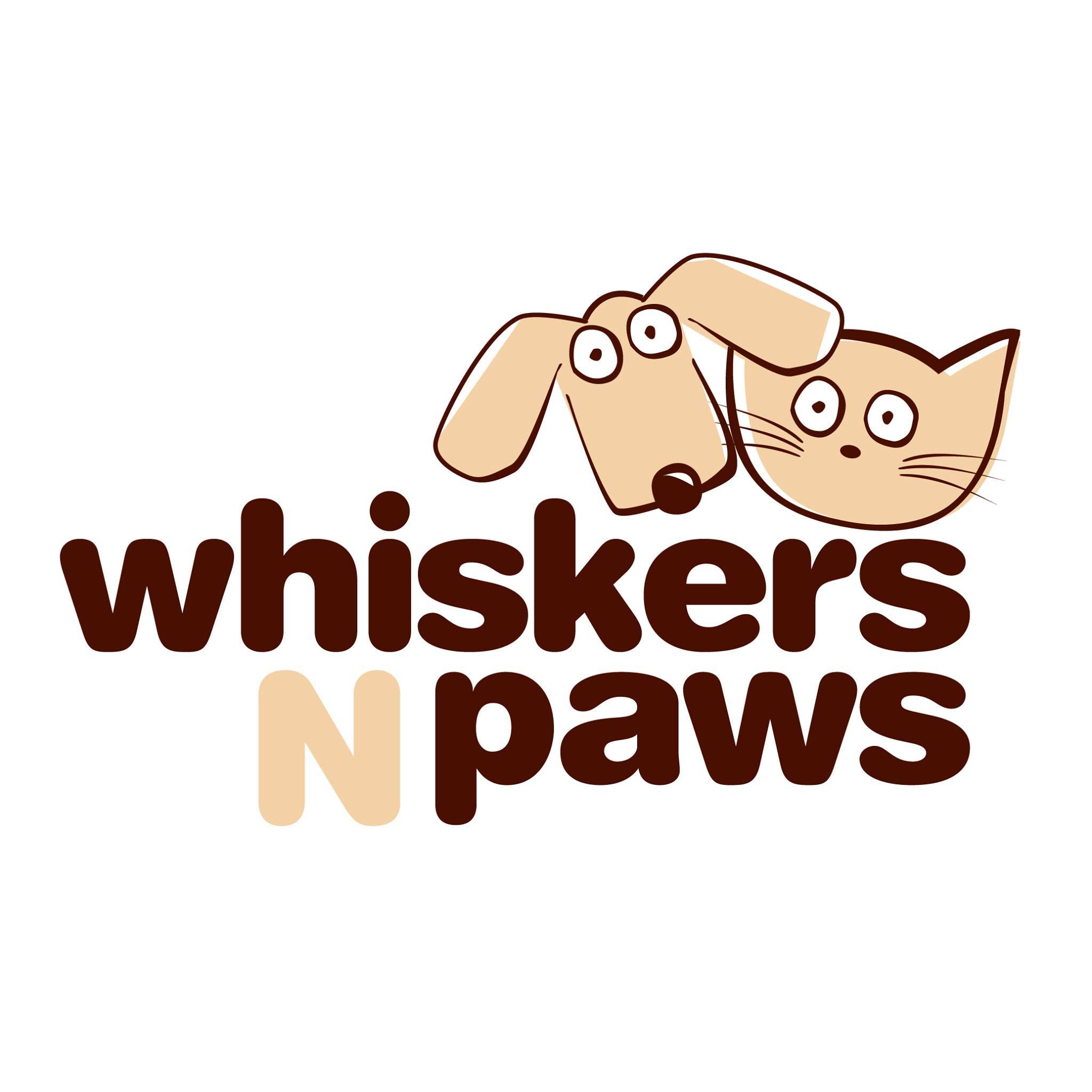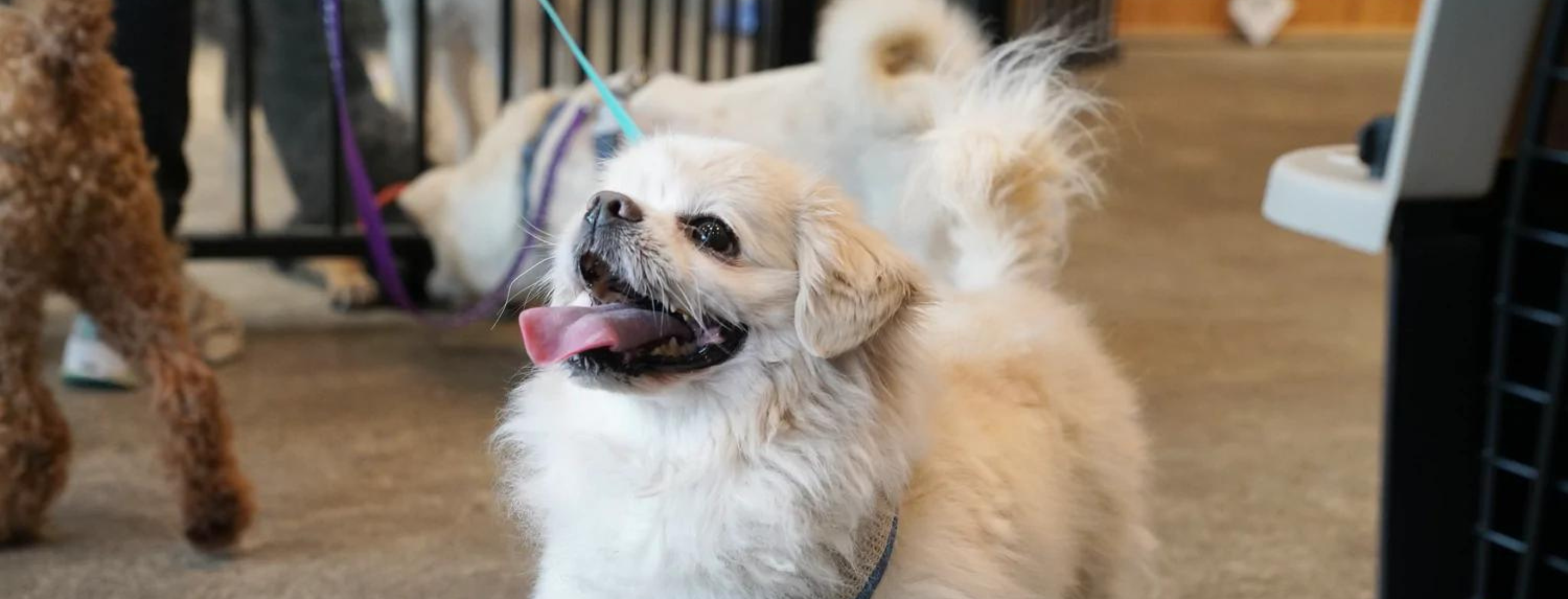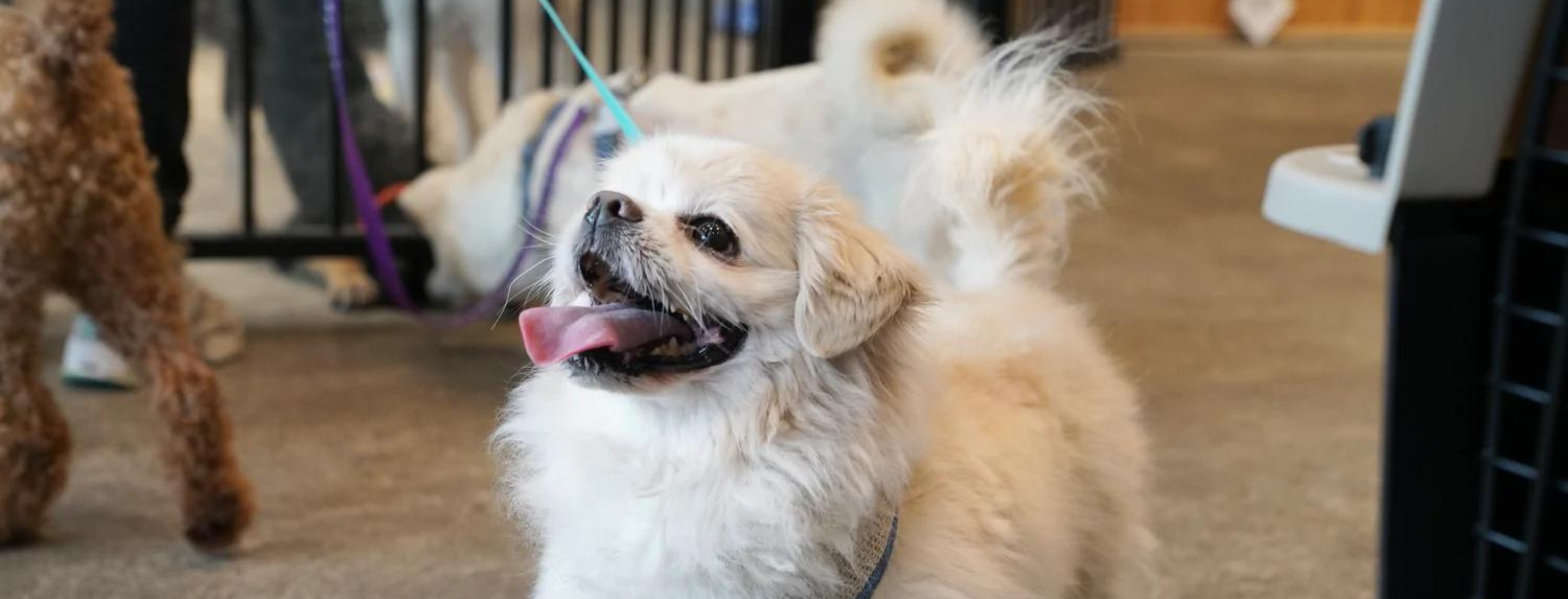Does your dog love all other dogs, or do they prefer their human friends? Maybe they only have a few close dog friends and can be reactive to others. The truth is, all of these are normal! We often have an expectation for our dogs to be friendly and playful with all other dogs they meet, but dog sociability is a spectrum, and most dogs have some level of selectivity about who they want to be friends with. We don’t get along with everybody we meet, and it’s the same for our dogs.
Normalize Dog Selective Dogs

Only a small percentage of dogs are truly dog social or dog aggressive. The majority of dogs fall somewhere in between, in the dog tolerant and dog selective categories.
Genetics and upbringing play a role in how sociable a dog is, but it is not a fixed personality trait. Good experiences can improve a dog’s sociability while bad experiences can worsen it. Often overlooked are illness and pain; a dog who is not feeling well is understandably less tolerant and more irritable. If your dog suddenly shows a lower tolerance to other dogs, it is a good idea to bring them to the vet to rule out any health issues.
Most puppies begin in the dog social stage. They love other dogs and actively seek out their company, even tolerating rude behaviour like barking in their face. As they grow older, almost every dog will move into the next stage of being dog tolerant or dog selective. A truly dog social adult dog is very rare! Unfortunately humans often expect dogs to behave this way.
Dog tolerant dogs get along with most dogs, are playful or neutral with them, and don’t lose their temper easily. They do well on leash around other dogs and have good communication skills.
Dog selective dogs have a small group of dog friends that they get along with, but may not do well with new dogs, especially when on leash. They often prefer a certain “type” of dog and have a shorter temper so arguments can happen more easily. They require more help from their humans to set them up for success in interactions with other dogs.
In rare cases dogs can be dog aggressive. These dogs may only have one or two dog friends or none at all. They can be reactive on leash and have weak social skills. Proper management and supervision is needed during interactions with other dogs.
Factors That Influence Sociability

Genetics and upbringing play a role in how sociable a dog is, but it is not a fixed personality trait. Good experiences can improve a dog’s sociability while bad experiences can worsen it. Often overlooked are illness and pain; a dog who is not feeling well is understandably less tolerant and more irritable. If your dog suddenly shows a lower tolerance to other dogs, it is a good idea to bring them to the vet to rule out any health issues.
Creating Good Social Experiences

Contrary to popular belief, the dog park is not the ideal place to socialize your dog. We do not know the other dogs, and cannot predict how those interactions will go. Things can quickly become a negative experience for your dog, resulting in the opposite of what we want to accomplish. A better alternative is to arrange playdates with dogs that you know who have good social skills. Find dogs with the same interests as yours, whether it be walking and hiking together or chasing and wrestling.
It seems like we see dog social dogs everywhere because they CAN go everywhere. But dog selective dogs are completely normal and are not bad dogs. As their guardians, we can help set them up for success by finding compatible playmates, not forcing them to interact with dogs they don’t like, and planning activities that don’t involve other dogs.
Is your dog a social butterfly or are they independent adventurers?
About Whiskers N Paws (https://www.wnp.com.hk/)
 |
Using international pet nutrition guidelines, Whiskers N Paws curate healthy and safe products. Always thinking pet first and create pet safe services. To share, Whiskers N Paws collaborate with experts and create spaces for people to come together. To do what's naturally right to us we work with shelters to find homeless pets a home. |




